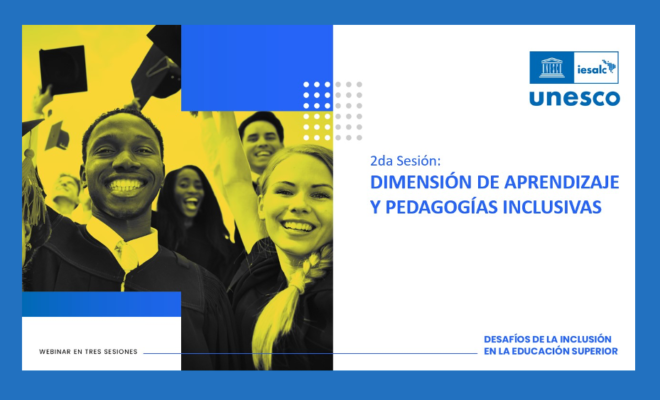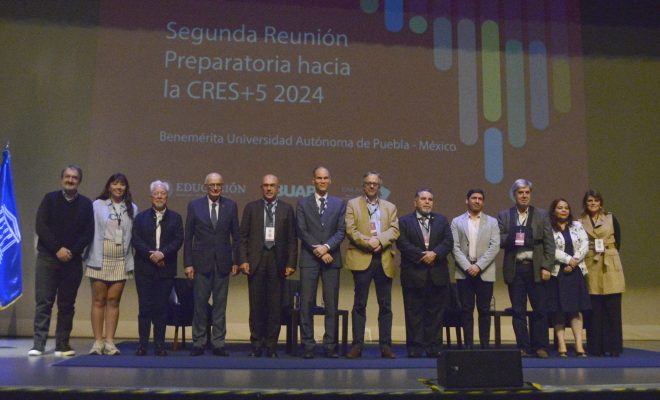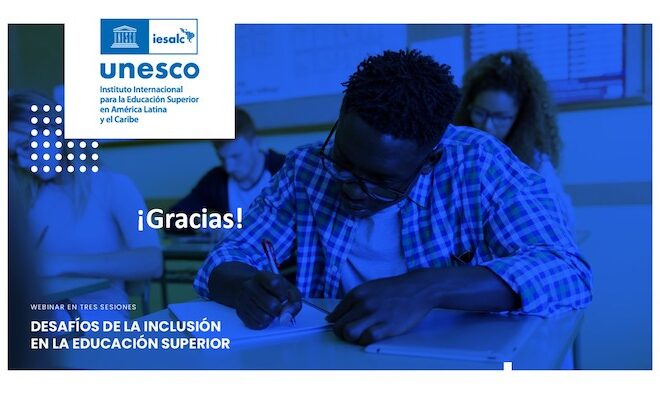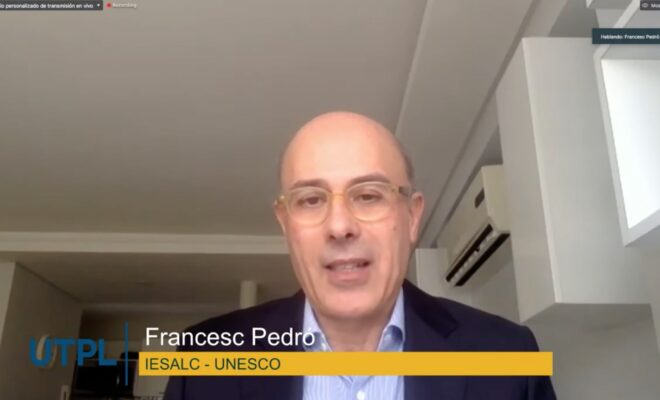IESALC: quality, equity, inclusion and lifelong learning are keywords
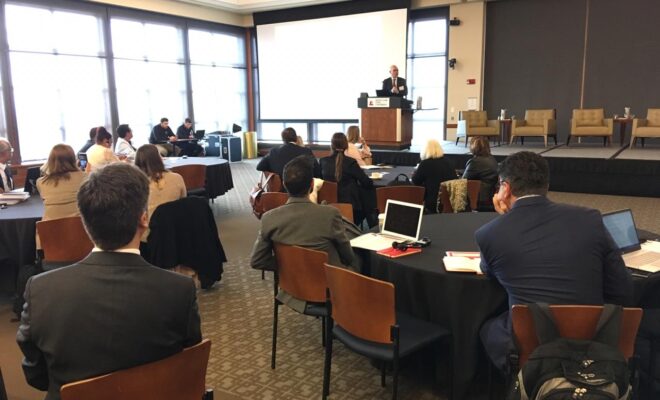

The UNESCO International Institute for Higher Education in Latin America and the Caribbean (IESALC) opened the second day of the XIII World Congress on Education 2019 with International Trends in Education: from policies to classrooms, a conference delivered by the IESALC director, Francesc Pedró. It outlined the global vision of public policies in education and the importance of having, for the first time, an international educational agenda whose objective 4, seeks to guarantee a quality, inclusive and equitable education, and to promote lifelong learning opportunities for everyone. “Quality, equity, inclusion and lifelong learning are key words to consider in an event like this”, he said.
For the IESALC, the results obtained in the field of education depend on factors such as leadership, school, parents, family and teachers. “The first explanatory factor is the student and his backpack, with a key determinant: socioeconomic extraction; the second factor is the teaching quality”. Other conditions necessary to strengthen school leadership include ensuring an orderly and safe environment, promoting teacher training and development, ensuring material conditions for quality education, allocating resources strategically, and defining objectives and expectations. It is also important to consider individual feedback, metacognitive strategies, group tutoring and collective learning; these factors increase the impact on education and have a low cost.
Among the weaknesses that exist in the world educational system, the Institute points out the low percentage of reforms carried out by the countries of the Organization for Economic Cooperation and Development (OECD) in the field of higher education, with 29 that prepare students for the future, 4 that improve schooling, 16 related to equity and quality, 12 on evaluation and advice,12 on funding, and 9 on governance.
Regarding the quality of the education system, he indicated that “it will never be superior to the quality of its teachers”, this explains why the discussion of the topic moves from policies to processes within the classroom.
A panel framed within the theme Confluence between Art, Tradition, Technology, and Innovation took place towards the end of the presentation. Willard Gingerich (Montclair State University), Edgardo N. De Vincenzi, (COMED), Francesc Pedró (UNESCO-IESALC), and Pang Maokun, (Sichuan Institute of Fine Arts), participated in this panel.
“Rather than just generating international mobility of the academic community in the universities, we must seek to develop strategies for the consolidation of a global citizenship,” said Maokun on the role of universities, as indicated in Juan Pablo Arboleda’s twitter.

From left to right: Jane Ann Williams (Montclair State University), Edgardo N. De Vincenzi, (COMED), Pang Maokun, (Sichuan Institute of Fine Arts) and Francesc Pedró (UNESCO-IESALC).
Mario Opporto, former minister of education of the province of Buenos Aires, took the floor to add that “Today’s University must educate for the challenges of the fourth industrial revolution, it must educate engineers but humanistic engineers; it must teach contemporaneity, historicity, cultural identity and independence”, according to the aforementioned source.
The director of IESALC pointed out the role of higher education in promoting the 2030 Agenda: “Universities have a direct responsibility as vanguard of educational research and teacher training for the promotion of the SDG 4”. At the conclusion of the event, Jane Ann Williams, associate rector of the Montclair State University, granted a special recognition to the Institute for its participation and contributions in the area of public policies in education.
The Conference, which took place at Montclair State University, in New Jersey, United States, from October 9 to 11, was organized by the World Confederation of Education (COMED) and focused on Education in the Digital Age: Opportunities and Challenges, based on the 2030 Agenda for Sustainable Development. Representatives from 19 countries participated to discuss technology and education, diversity and inclusion, public policies in education and the impact of internationalization on education.
Download the presentation Tendencias internacionales en educación: de las políticas a las aulas (International Trends in Education: from policies to classrooms)
RELATED ITEMS

